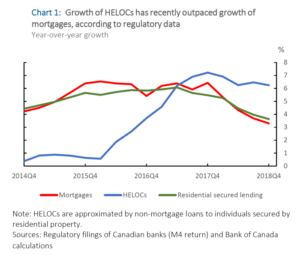
Imagine your financial future as a magical land where your money grows on trees, but alas, that world requires a map! With Financial planning services leading the charge, you can navigate through the wilderness of budgeting, saving, and investing without getting lost in the thickets of debt and confusion. Buckle up as we delve into how these services are not merely helpful but essential in crafting a secure financial future!
At the heart of financial planning lies the art of crafting a comprehensive plan that balances your budgetary needs while sowing the seeds of investment growth. However, beware of common pitfalls that can turn your financial dreams into nightmares. In this adventure, we’ll explore credit management strategies that’ll have you dancing your way out of debt and into the land of financial freedom!
Financial Planning Basics
Financial planning is like having a GPS for your financial journey. Without it, you might end up driving in circles, lost in a maze of bills, investments, and bank statements. The importance of financial planning services lies in their ability to lead you to financial security, helping you navigate through life’s unpredictable turns like an expert driving instructor. It’s your roadmap to achieving your financial goals, ensuring that you reach your destination without taking a detour into debt or financial despair.A comprehensive financial plan is your all-in-one toolkit for managing your money effectively.
It includes crucial elements such as budgeting, saving, and investing, each of which plays a vital role in securing your financial future. Crafting a budget helps you allocate your hard-earned cash wisely, guaranteeing that you have enough for necessities while still enjoying the occasional indulgence—because who doesn’t want to treat themselves to pizza night? Saving creates a safety net for emergencies, while investing allows your money to grow over time, working hard for you while you sit back and enjoy life.
Together, these components form the foundation of a solid financial plan that can withstand the test of time and market fluctuations.
Essential Elements of a Comprehensive Financial Plan
A solid financial plan covers several key areas that work in harmony to create financial resilience. Without these, you might find yourself financially unprepared, much like trying to bake a cake without flour—good luck with that!
- Budgeting: This is where it all begins. A well-structured budget helps you track your income and expenses, ensuring you don’t spend like there’s no tomorrow. It’s your financial blueprint!
- Saving: Aim to save at least 20% of your income. This can build your emergency fund, a luxury vacation fund, or even your retirement savings. Think of it as paying yourself first.
- Investing: Investing is where the magic happens. Compounding interest can turn a small sum into a fortune over time. Make your money work for you instead of the other way around.
Common Financial Planning Mistakes and How to Avoid Them
Even the most seasoned financial adventurers can stumble upon pitfalls. Recognizing these common mistakes is crucial to keeping your financial ship sailing smoothly.
- Neglecting to Budget: Many people skip this step, thinking they have it all figured out. However, without a budget, you could be unknowingly leaking money like a faulty faucet.
- Ignoring Retirement Savings: The earlier you start saving for retirement, the better. Procrastination is not your friend here; time is your best ally when it comes to growing your nest egg.
- Investing Without Research: Jumping into investments without proper research is like diving into a pool without checking the water level. Educate yourself about risk and reward before leaping in!
“Failing to plan is planning to fail.” – Alan Lakein
Credit and Debt Management

Managing credit and debt is like walking a tightrope while juggling flaming torches—one misstep and you might find yourself in a fiery predicament! But fret not, with a little knowledge and some savvy strategies, you can keep your balance and avoid falling into the abyss of financial despair. Let’s dive into the world of credit counseling services and effective debt management strategies that will have you performing acrobatics in no time.
Credit Counseling Services
Credit counseling services are a beacon of hope for those feeling lost in a sea of debt. These organizations provide guidance and support to help consumers understand their financial situations, create budgets, and explore options for management and repayment. Utilizing these services can lead to a brighter financial future without the stress of navigating it alone. The benefits of credit counseling are many, and here are some key points to consider:
- Professional Guidance: Trained counselors can help you assess your financial health and create a personalized plan.
- Debt Management Plans (DMP): Credit counselors can negotiate with creditors on your behalf to lower interest rates and monthly payments.
- Financial Education: Gain valuable insights into budgeting, saving, and credit repair to avoid pitfalls in the future.
- Emotional Support: Sometimes, just talking to someone who understands can relieve a huge burden.
Debt Consolidation and Management Strategies
Debt consolidation might sound like a fancy term reserved for financial wizards, but it’s actually a straightforward strategy for simplifying your debt situation. By combining multiple debts into a single loan, you can streamline payments and potentially lower interest rates. Here are some effective strategies for consolidation and management:
- Personal Loans: Taking out a personal loan to pay off high-interest debts can simplify your payments and may save you money.
- Home Equity Loans: If you own a home, tapping into your home equity can provide a lower-rate option for consolidating debt.
- Balance Transfer Credit Cards: Transfer high-interest credit card balances to a card with a lower rate, but watch out for fees!
- Debt Settlement: Negotiating with creditors to pay less than what you owe can be an option, but it can also impact your credit score.
Obtaining Debt Relief
Debt relief might sound like a fairy tale, but it’s very real and within reach if approached wisely. The steps toward obtaining it require careful planning and a clear understanding of the implications involved. Here’s how to navigate the waters of debt relief effectively:
- Assess Your Situation: Take a comprehensive look at your debts, income, and expenses to understand your financial landscape.
- Research Options: Explore various debt relief options, such as credit counseling services, debt management plans, and settlements.
- Consult Professionals: Engage with certified specialists who can provide insights and help you choose the best path forward.
- Understand the Implications: Be aware of the potential impact on your credit score and future borrowing abilities, as some relief methods could have consequences.
“Debt is like a bad haircut—it can take time to grow out, but you can always fix it with the right tools and a little patience!”
Investment and Estate Planning

When it comes to creating a financial strategy that is as secure as a squirrel’s winter stash, investment and estate planning take the front seat. Think of this as the blueprint for building your financial fortress, ensuring that your hard-earned money not only grows but also gets passed down like a family heirloom—hopefully with fewer unwanted surprises than Aunt Mildred’s fruitcake.
Significance of Estate Plan Trusts
Estate plan trusts are like the VIP backstage passes of financial planning. They provide a clear path for your assets to be distributed according to your wishes after you’ve taken your final bow. Here’s why they’re essential:
-
Trusts help avoid probate, which is like a long, drawn-out family reunion where everyone argues over who gets Grandma’s china.
- They allow for ongoing management of your assets if you’re not up to handling them yourself—think of it as hiring a butler for your money.
- Trusts can provide tax benefits that would make even Uncle Sam raise an eyebrow in admiration.
Integrating trusts into your estate plan ensures that your financial legacy maintains its integrity and reaches your beneficiaries with minimal hassle. This is particularly vital when dealing with minor children or family members who might need more guidance (or supervision) in handling their newfound riches.
Utilization of Home Equity Loans in Investment Strategies
Home equity loans can be like finding a golden ticket in your chocolate bar—if you know how to use them wisely. Here’s a look at how leveraging the equity in your home can serve as a powerful investment tool:
- Funding new investment opportunities: Use the loan to invest in stocks, bonds, or even that hot new startup that promises to revolutionize the world (or at least your living room).
- Real estate investments: Purchase rental properties and let your tenants help pay off your home equity loan while you sip iced tea on your porch.
- Debt consolidation: Use the equity to pay off higher-interest debts, transforming a financial nightmare into a dream with lower interest rates.
The trick is to ensure that the returns from your investments exceed the costs associated with the loan; otherwise, you might find yourself in a financial game of Jenga, where one wrong move could send it all tumbling down.
Guide on Leases and Leasing Options
Leasing isn’t just for cars and fancy apartments; it’s also a savvy move for those looking to maintain financial flexibility while investing. Here’s a guide to get your leasing ducks in a row:
-
Leases provide access to assets without the hefty upfront costs, making it easier to balance your budget like a pro acrobat.
- Operating leases allow businesses to use equipment without taking on the burden of ownership—perfect for those who love to keep things light and breezy.
- Finance leases, on the other hand, can be beneficial for businesses looking to eventually own the asset, making them feel like they’ve achieved financial maturity.
Leasing options can help you maintain cash flow while still acquiring the tools needed to grow your investments. This gives you the flexibility to pivot and adapt your strategy as market conditions change—like a dancer at a party, smoothly transitioning from the cha-cha to the moonwalk.
Ending Remarks
As we wrap up our financial odyssey, remember that financial planning services are like the trusty compass guiding you toward a prosperous future. By avoiding common mistakes, managing debt wisely, and incorporating smart investment and estate planning strategies, you’re not just surviving financially; you’re thriving! So get out there, embrace your financial future, and don’t forget to take your map!
FAQ Resource
What are financial planning services?
Financial planning services help individuals and families create comprehensive plans to achieve their financial goals, covering budgeting, investing, and managing debt.
How can I start financial planning?
Begin by assessing your current financial situation, setting clear goals, and considering professional advice to craft a tailored plan.
What’s the difference between financial planning and investment advice?
Financial planning encompasses a broader scope, including budgeting and debt management, while investment advice is specifically focused on managing and growing your investments.
How often should I review my financial plan?
It’s wise to review your financial plan at least annually or whenever you experience significant life changes, such as a new job, marriage, or having children.
Can I do financial planning on my own?
Absolutely! While you can DIY your financial planning, consulting a professional can provide insights and strategies that might be beyond your current expertise.





